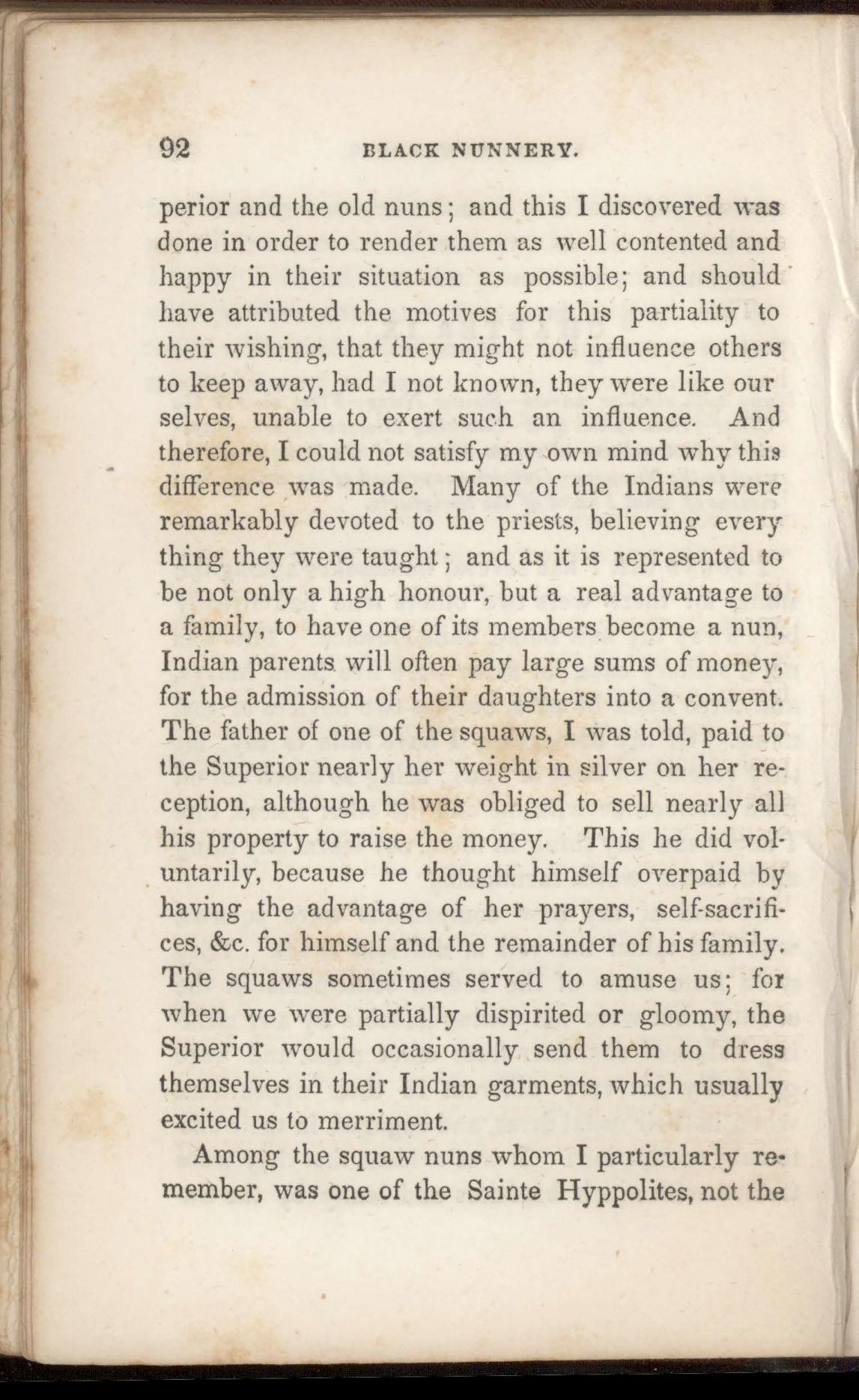

perior and the old nuns; and this I discovered was done in order to render them as well contented and happy in their situation as possible; and should have attributed the motives for this partiality to their wishing, that they might not influence others to keep away, had I not known, they were like our selves, unable to exert such an influence. And therefore, I could not satisfy my own mind why this difference was made. Many of the Indians were remarkably devoted to the priests, believing every thing they were taught; and as it is represented to be not only a high honour, but a real advantage to a family, to have one of its members become a nun, Indian parents will often pay large sums of money, for the admission of their daughters into a convent. The father of one of the squaws, I was told, paid to the Superior nearly her weight in silver on her reception, although he was obliged to sell nearly all his property to raise the money. This he did voluntarily, because he thought himself overpaid by having the advantage of her prayers, self-sacrifices, &c. for himself and the remainder of his family. The squaws sometimes served to amuse us; for when we were partially dispirited or gloomy, the Superior would occasionally send them to dress themselves in their Indian garments, which usually excited us to merriment ✝.
Among the squaw nuns whom I particularly remember, was one of the Sainte Hyppolites, not the
